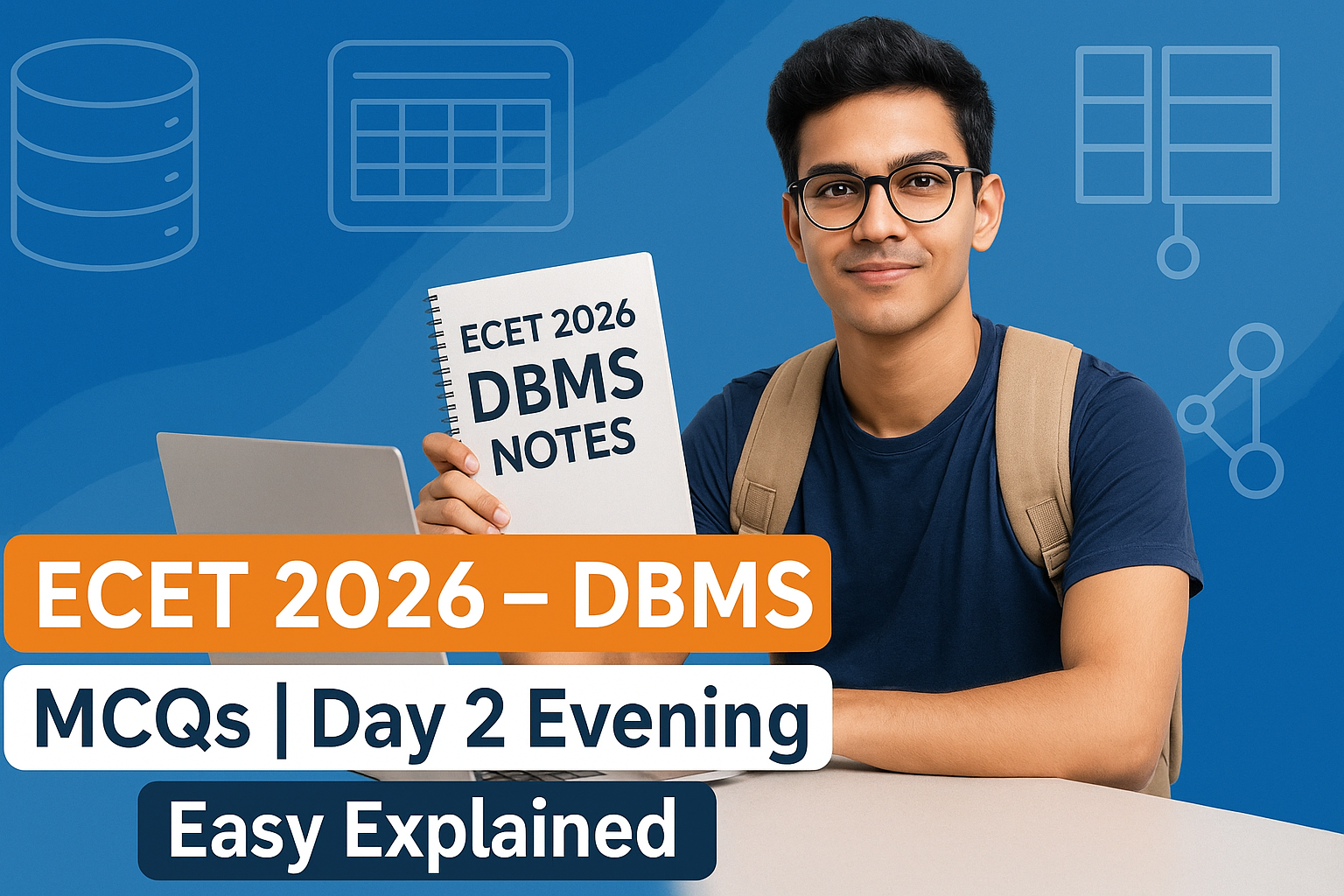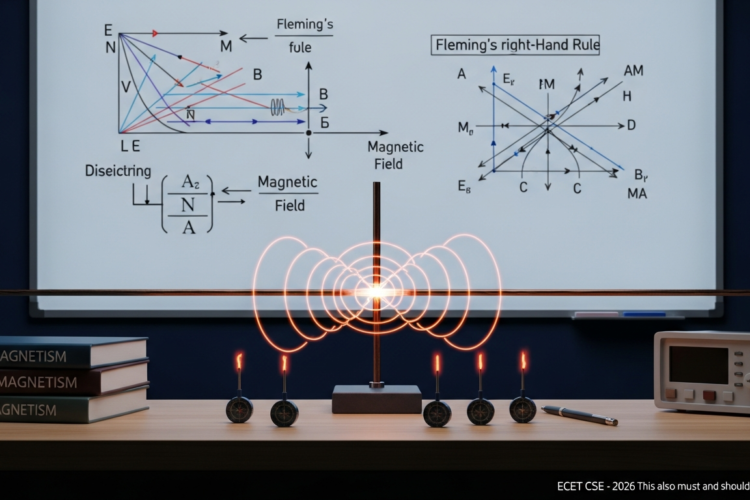
Introduction
Welcome to Day 2 – Evening Session of your ECET 2026 CSE preparation journey! Today’s topic focuses on Database Management System (DBMS) — a fundamental subject under the C-23 curriculum. Understanding DBMS is crucial because it forms the backbone of how data is stored, managed, and retrieved in modern computing environments. A solid grasp of DBMS will not only help you score better in ECET but also boost your technical foundation for future IT and software roles.
📘 Concept Notes – What is DBMS?
✅ Definition:
A Database Management System (DBMS) is software that allows users to define, create, maintain, and control access to databases. It acts as a bridge between users and the database.
✅ Key Functions of DBMS:
- Data Storage & Retrieval: Efficiently stores and retrieves data.
- Data Manipulation: Enables inserting, updating, deleting, and querying data.
- Data Security: Provides access control and user authentication.
- Backup & Recovery: Ensures data is backed up and can be recovered.
- Concurrency Control: Handles multiple users accessing the database simultaneously.
✅ Types of DBMS:
- Hierarchical DBMS
- Network DBMS
- Relational DBMS (RDBMS) – Most common (e.g., MySQL, Oracle)
- Object-Oriented DBMS
✅ Advantages of DBMS:
- Reduces data redundancy
- Ensures data consistency
- Supports data sharing
- Improves data security
✅ Common DBMS Terminologies:
| Term | Meaning |
|---|---|
| Table | Collection of related data |
| Field (Column) | Attribute of the data |
| Record (Row) | Single entry in a table |
| Primary Key | Uniquely identifies a record |
| Foreign Key | Establishes relation between tables |
🔟 10 Most Expected MCQs – ECET 2026 DBMS
- Which of the following is a DBMS software?
A) MS Excel
B) MS Word
C) Oracle
D) Notepad - What is the full form of DBMS?
A) Data Backup Management System
B) Data Base Management System
C) Data Block Memory Storage
D) Digital Binary Management Software - Which key uniquely identifies a record in a table?
A) Foreign Key
B) Secondary Key
C) Primary Key
D) Unique Key - Which DBMS model uses tables to organize data?
A) Hierarchical
B) Network
C) Object-oriented
D) Relational - Which of the following is not a function of DBMS?
A) Data Processing
B) Data Storage
C) Data Retrieval
D) Data Deletion - A field in a table that refers to the primary key in another table is called?
A) Super Key
B) Primary Key
C) Foreign Key
D) Composite Key - Which of the following is an advantage of DBMS?
A) Data inconsistency
B) Data redundancy
C) Data isolation
D) Data sharing - In DBMS, what does SQL stand for?
A) Structured Question Language
B) Simple Query Language
C) Structured Query Language
D) Sequential Query Language - Which component of DBMS ensures only authorized users can access data?
A) Query Processor
B) Security Manager
C) Backup Manager
D) Scheduler - Which of the following is an example of RDBMS?
A) MongoDB
B) Firebase
C) MySQL
D) Neo4j
✅ Answer Key Table
| Q.No | Answer |
|---|---|
| 1 | C |
| 2 | B |
| 3 | C |
| 4 | D |
| 5 | A |
| 6 | C |
| 7 | D |
| 8 | C |
| 9 | B |
| 10 | C |
🧠 Answer Explanations
- Oracle is a popular DBMS. Others are general-purpose software.
- The correct expansion is Data Base Management System.
- A Primary Key uniquely identifies each record.
- Relational DBMS organizes data in table formats.
- Data Processing is not a core function of DBMS.
- Foreign Key is used to link two tables.
- Data Sharing is a primary advantage of DBMS.
- SQL stands for Structured Query Language.
- Security Manager is responsible for data protection.
- MySQL is a Relational DBMS. Others follow different models.
🎯 Why This Practice Matters
Practicing these expected MCQs boosts your confidence and helps you retain important concepts in less time. The DBMS section often includes 4–5 questions in ECET, and these basic-level questions are common in past papers. By mastering this topic early, you’ll secure easy marks and build a strong base for advanced DBMS concepts in upcoming sessions.
📲 Join Our ECET 2026 Prep Community on Telegram
Stay updated with daily MCQs, study tips, and exclusive PDFs:
👉 @LearnNewThingsHub



